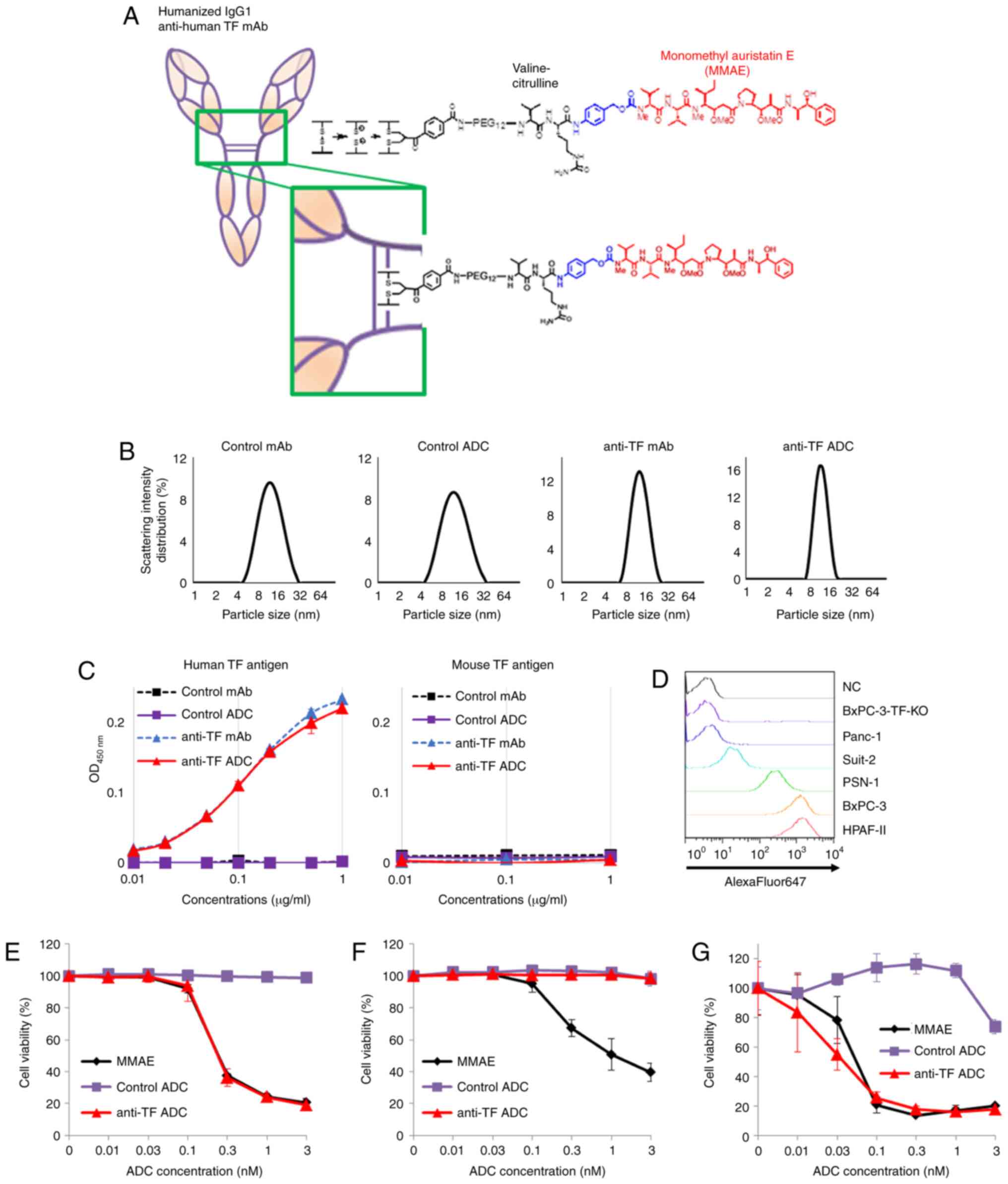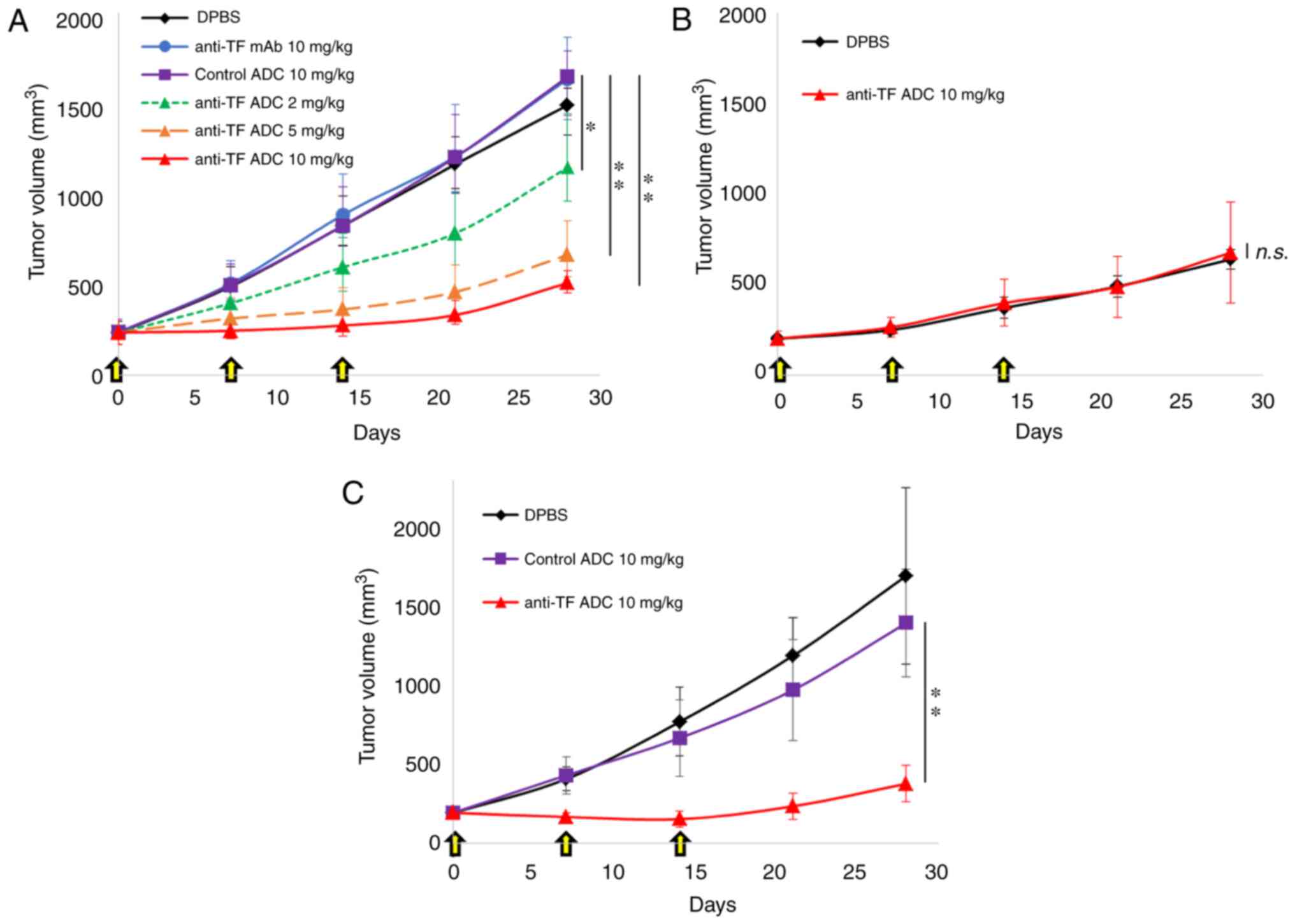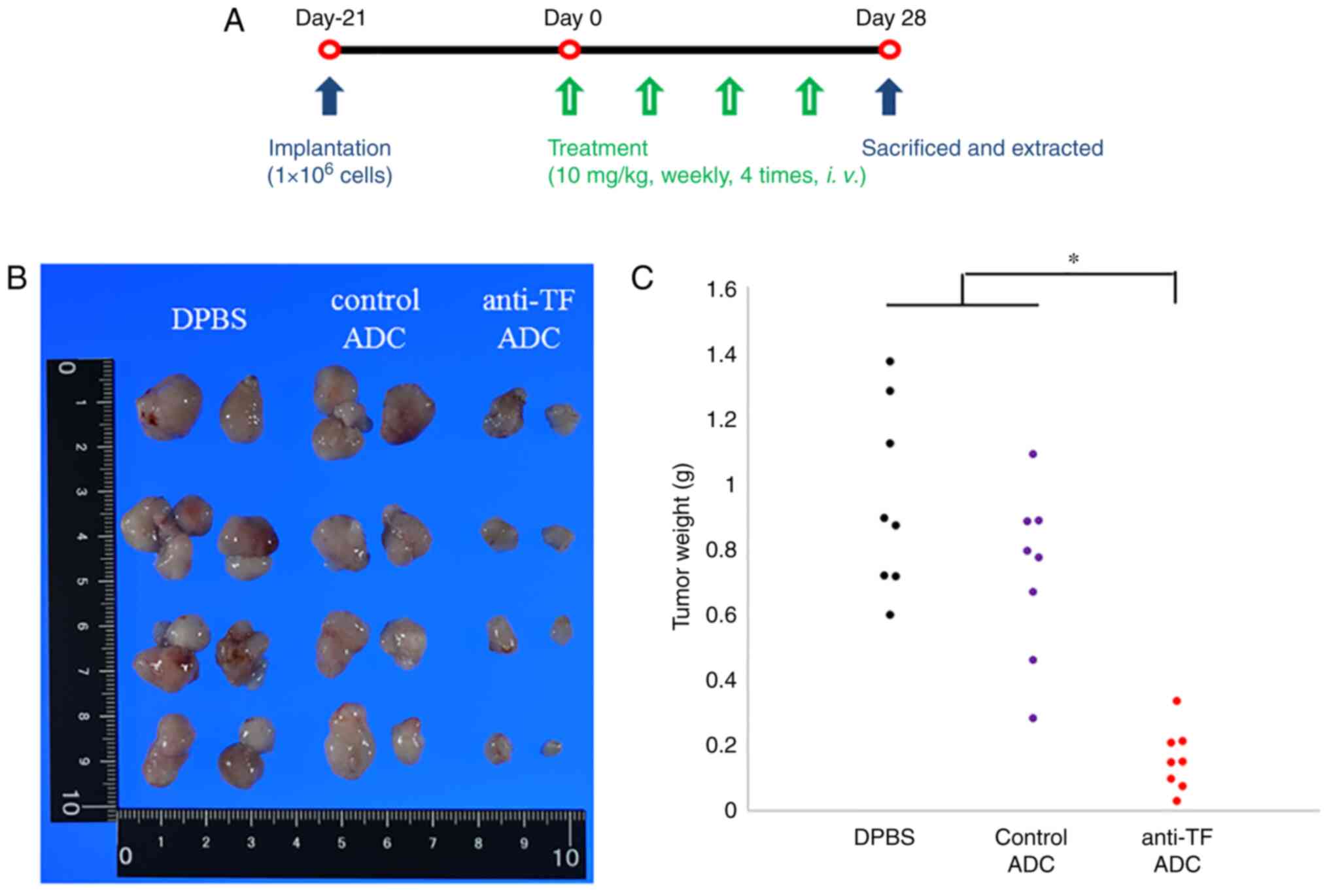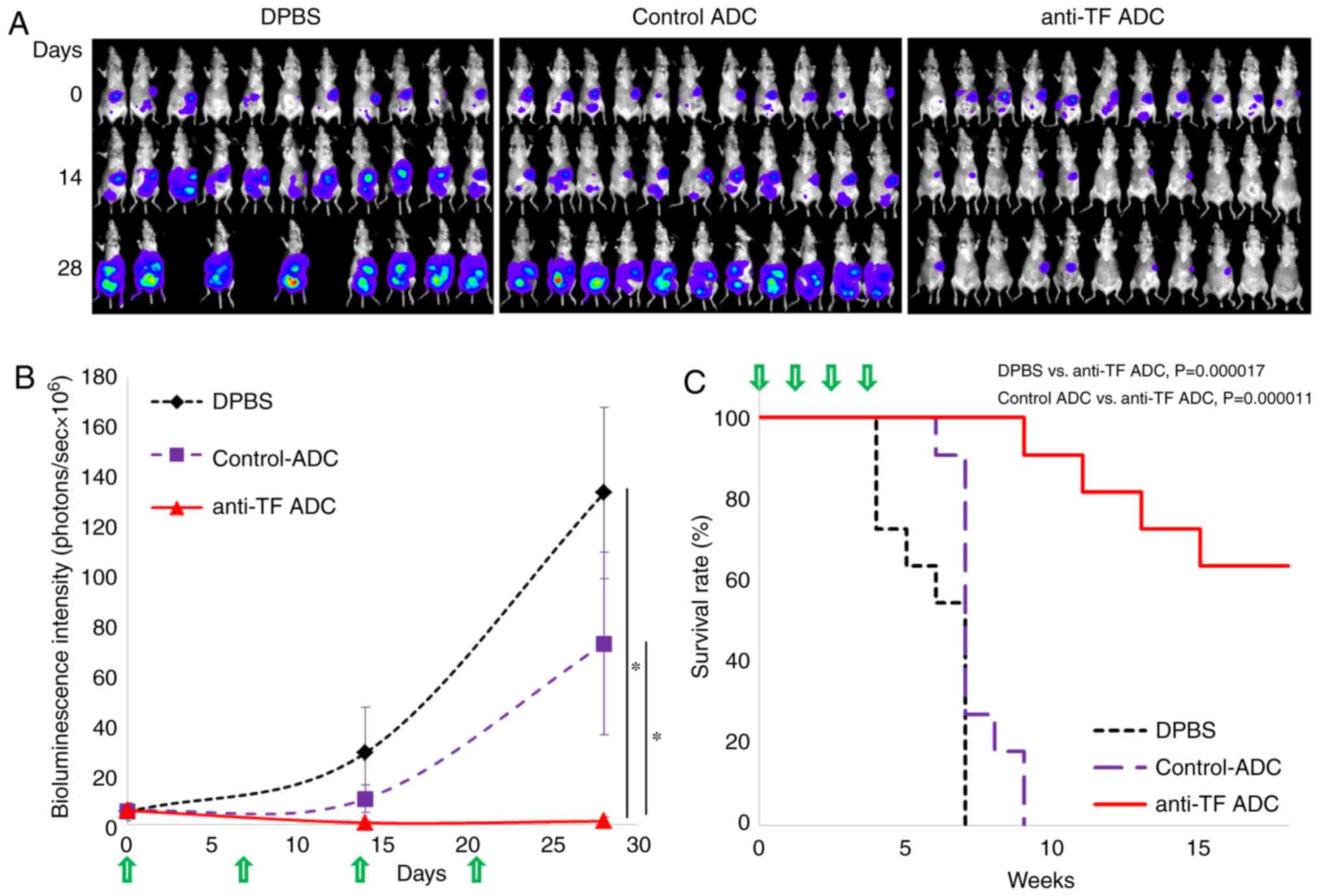|
1
|
Howlader N, Noone AM, Krapcho M, Miller D,
Bishop K, Kosary CL, Yu M, Ruhl J, Tatalovich Z, Mariotto A, et al:
SEER Cancer Statistics Review. 1975-2014, National Cancer
Institute; Bethesda, MD: simplehttps://seercancergov/csr/1975_2014/based on
November 2016 SEER data submission, posted to the SEER web site,
April 2017. May 11–2017
|
|
2
|
Rhim AD, Mirek ET, Aiello NM, Maitra A,
Bailey JM, McAllister F, Reichert M, Beatty GL, Rustgi AK,
Vonderheide RH, et al: EMT and dissemination precede pancreatic
tumor formation. Cell. 148:349–361. 2012. View Article : Google Scholar
|
|
3
|
Ferrone CR, Pieretti-Vanmarcke R, Bloom
JP, Zheng H, Szymonifka J, Wargo JA, Thayer SP, Lauwers GY,
Deshpande V, Mino-Kenudson M, et al: Pancreatic ductal
adenocarcinoma: Long-term survival does not equal cure. Surgery.
152 (3 Suppl 1):S43–S49. 2012. View Article : Google Scholar
|
|
4
|
Khorana AA and Fine RL: Pancreatic cancer
and thromboembolic disease. Lancet Oncol. 5:655–663. 2004.
View Article : Google Scholar
|
|
5
|
Rak J, Yu JL, Luyendyk J and Mackman N:
Oncogenes, trousseau syndrome, and cancer-related changes in the
coagulome of mice and humans. Cancer Res. 66:10643–10646. 2006.
View Article : Google Scholar
|
|
6
|
Stein PD, Beemath A, Meyers FA, Skaf E,
Sanchez J and Olson RE: Incidence of venous thromboembolism in
patients hospitalized with cancer. Am J Med. 119:60–68. 2006.
View Article : Google Scholar
|
|
7
|
Matsumura Y: Cancer stromal targeting
(CAST) therapy. Adv Drug Deliv Rev. 64:710–719. 2012. View Article : Google Scholar
|
|
8
|
Callander NS, Varki N and Rao LV:
Immunohistochemical identification of tissue factor in solid
tumors. Cancer. 70:1194–1201. 1992. View Article : Google Scholar
|
|
9
|
Nitori N, Ino Y, Nakanishi Y, Yamada T,
Honda K, Yanagihara K, Kosuge T, Kanai Y, Kitajima M and Hirohashi
S: Prognostic significance of tissue factor in pancreatic ductal
adenocarcinoma. Clin Cancer Res. 11:2531–2539. 2005. View Article : Google Scholar
|
|
10
|
van den Berg YW, Osanto S, Reitsma PH and
Versteeg HH: The relationship between tissue factor and cancer
progression: Insights from bench and bedside. Blood. 119:924–932.
2012. View Article : Google Scholar
|
|
11
|
Kasthuri RS, Taubman MB and Mackman N:
Role of tissue factor in cancer. J Clin Oncol. 27:4834–4838. 2009.
View Article : Google Scholar
|
|
12
|
Bourcy M, Suarez-Carmona M, Lambert J,
Francart ME, Schroeder H, Delierneux C, Skrypek N, Thompson EW,
Jerusalem G, Berx G, et al: Tissue factor induced by
epithelial-mesenchymal transition triggers a procoagulant state
that drives metastasis of circulating tumor cells. Cancer Res.
76:4270–4282. 2016. View Article : Google Scholar
|
|
13
|
Hisada Y and Mackman N: Tissue factor and
cancer: Regulation, tumor growth, and metastasis. Semin Thromb
Hemost. 45:385–395. 2019. View Article : Google Scholar
|
|
14
|
Yamashita H, Kitayama J, Ishikawa M and
Nagawa H: Tissue factor expression is a clinical indicator of
lymphatic metastasis and poor prognosis in gastric cancer with
intestinal phenotype. J Surg Oncol. 95:324–331. 2007. View Article : Google Scholar
|
|
15
|
Sawada M, Miyake S, Ohdama S, Matsubara O,
Masuda S, Yakumaru K and Yoshizawa Y: Expression of tissue factor
in non-small-cell lung cancers and its relationship to metastasis.
Br J Cancer. 79:472–477. 1999. View Article : Google Scholar
|
|
16
|
Versteeg HH, Schaffner F, Kerver M,
Petersen HH, Ahamed J, Felding-Habermann B, Takada Y, Mueller BM
and Ruf W: Inhibition of tissue factor signaling suppresses tumor
growth. Blood. 111:190–199. 2008. View Article : Google Scholar
|
|
17
|
Zhang X, Li Q, Zhao H, Ma L, Meng T, Qian
J, Jin R, Shen J and Yu K: Pathological expression of tissue factor
confers promising antitumor response to a novel therapeutic
antibody SC1 in triple negative breast cancer and pancreatic
adenocarcinoma. Oncotarget. 8:59086–59102. 2017. View Article : Google Scholar
|
|
18
|
Breij EC, de Goeij BE, Verploegen S,
Schuurhuis DH, Amirkhosravi A, Francis J, Miller VB, Houtkamp M,
Bleeker WK, Satijn D and Parren PW: An antibody-drug conjugate that
targets tissue factor exhibits potent therapeutic activity against
a broad range of solid tumors. Cancer Res. 74:1214–1226. 2014.
View Article : Google Scholar
|
|
19
|
Koga Y, Manabe S, Aihara Y, Sato R,
Tsumura R, Iwafuji H, Furuya F, Fuchigami H, Fujiwara Y, Hisada Y,
et al: Antitumor effect of antitissue factor antibody-MMAE
conjugate in human pancreatic tumor xenografts. Int J Cancer.
137:1457–1466. 2015. View Article : Google Scholar
|
|
20
|
de Goeij BE, Satijn D, Freitag CM,
Wubbolts R, Bleeker WK, Khasanov A, Zhu T, Chen G, Miao D, van
Berkel PH and Parren PW: High turnover of tissue factor enables
efficient intracellular delivery of antibody-drug conjugates. Mol
Cancer Ther. 14:1130–1140. 2015. View Article : Google Scholar
|
|
21
|
Theunissen JW, Cai AG, Bhatti MM, Cooper
AB, Avery AD, Dorfman R, Guelman S, Levashova Z and Migone TS:
Treating tissue factor-positive cancers with antibody-drug
conjugates that do not affect blood clotting. Mol Cancer Ther.
17:2412–2426. 2018. View Article : Google Scholar
|
|
22
|
Tsumura R, Manabe S, Takashima H, Koga Y,
Yasunaga M and Matsumura Y: Influence of the dissociation rate
constant on the intra-tumor distribution of antibody-drug conjugate
against tissue factor. J Control Release. 284:49–56. 2018.
View Article : Google Scholar
|
|
23
|
Tsumura R, Manabe S, Takashima H, Koga Y,
Yasunaga M and Matsumura Y: Evaluation of the antitumor mechanism
of antibody-drug conjugates against tissue factor in stroma-rich
allograft models. Cancer Sci. 110:3296–3305. 2019. View Article : Google Scholar
|
|
24
|
Hong DS, Concin N, Vergote I, de Bono JS,
Slomovitz BM, Drew Y, Arkenau HT, Machiels JP, Spicer JF, Jones R,
et al: Tisotumab vedotin in previously treated recurrent or
metastatic cervical cancer. Clin Cancer Res. 26:1220–1228. 2020.
View Article : Google Scholar
|
|
25
|
de Bono JS, Concin N, Hong DS,
Thistlethwaite FC, Machiels JP, Arkenau HT, Plummer R, Jones RH,
Nielsen D, Windfeld K, et al: Tisotumab vedotin in patients with
advanced or metastatic solid tumours (InnovaTV 201): A
first-in-human, multicentre, phase 1–2 trial. Lancet Oncol.
20:383–393. 2019. View Article : Google Scholar
|
|
26
|
Badescu G, Bryant P, Bird M, Henseleit K,
Swierkosz J, Parekh V, Tommasi R, Pawlisz E, Jurlewicz K, Farys M,
et al: Bridging disulfides for stable and defined antibody drug
conjugates. Bioconjug Chem. 25:1124–1136. 2014. View Article : Google Scholar
|
|
27
|
Bryant P, Pabst M, Badescu G, Bird M,
McDowell W, Jamieson E, Swierkosz J, Jurlewicz K, Tommasi R,
Henseleit K, et al: In vitro and in vivo evaluation of cysteine
rebridged trastuzumab-MMAE antibody drug conjugates with defined
drug-to-antibody ratios. Mol Pharm. 12:1872–1879. 2015. View Article : Google Scholar
|
|
28
|
Yasunaga M, Saijou S, Hanaoka S, Anzai T,
Tsumura R and Matsumura Y: Significant antitumor effect of an
antibody against TMEM180, a new colorectal cancer-specific
molecule. Cancer Sci. 110:761–770. 2019. View Article : Google Scholar
|
|
29
|
Kuramochi T, Igawa T, Tsunoda H and
Hattori K: Humanization and simultaneous optimization of monoclonal
antibody. Methods Mol Biol. 1060:123–137. 2014. View Article : Google Scholar
|
|
30
|
Tsumura R, Sato R, Furuya F, Koga Y,
Yamamoto Y, Fujiwara Y, Yasunaga M and Matsumura Y: Feasibility
study of the Fab fragment of a monoclonal antibody against tissue
factor as a diagnostic tool. Int J Oncol. 47:2107–2114. 2015.
View Article : Google Scholar
|
|
31
|
Kanda Y: Investigation of the freely
available easy-to-use software ‘EZR’ for medical statistics. Bone
Marrow Transplant. 48:452–458. 2013. View Article : Google Scholar
|
|
32
|
Saito Y, Hashimoto Y, Kuroda J, Yasunaga
M, Koga Y, Takahashi A and Matsumura Y: The inhibition of
pancreatic cancer invasion-metastasis cascade in both cellular
signal and blood coagulation cascade of tissue factor by its
neutralisation antibody. Eur J Cancer. 47:2230–2239. 2011.
View Article : Google Scholar
|
|
33
|
Jeffrey SC, Burke PJ, Lyon RP, Meyer DW,
Sussman D, Anderson M, Hunter JH, Leiske CI, Miyamoto JB, Nicholas
ND, et al: A potent anti-CD70 antibody-drug conjugate combining a
dimeric pyrrolobenzodiazepine drug with site-specific conjugation
technology. Bioconjug Chem. 24:1256–1263. 2013. View Article : Google Scholar
|
|
34
|
Ogitani Y, Aida T, Hagihara K, Yamaguchi
J, Ishii C, Harada N, Soma M, Okamoto H, Oitate M, Arakawa S, et
al: DS-8201a, a novel HER2-targeting ADC with a Novel DNA
topoisomerase I inhibitor, demonstrates a promising antitumor
efficacy with differentiation from T-DM1. Clin Cancer Res.
22:5097–5108. 2016. View Article : Google Scholar
|
|
35
|
Chen R, Hou J, Newman E, Kim Y, Donohue C,
Liu X, Thomas SH, Forman SJ and Kane SE: CD30 downregulation, MMAE
resistance, and MDR1 upregulation are all associated with
resistance to brentuximab vedotin. Mol Cancer Ther. 14:1376–1384.
2015. View Article : Google Scholar
|
|
36
|
Yu SF, Zheng B, Go M, Lau J, Spencer S,
Raab H, Soriano R, Jhunjhunwala S, Cohen R, Caruso M, et al: A
novel anti-CD22 anthracycline-based antibody-drug conjugate (ADC)
that overcomes resistance to auristatin-based ADCs. Clin Cancer
Res. 21:3298–3306. 2015. View Article : Google Scholar
|
|
37
|
Liu-Kreyche P, Shen H, Marino AM, Iyer RA,
Humphreys WG and Lai Y: Lysosomal P-gp-MDR1 confers drug resistance
of brentuximab vedotin and its cytotoxic payload monomethyl
auristatin e in tumor cells. Front Pharmacol. 10:7492019.
View Article : Google Scholar
|


















